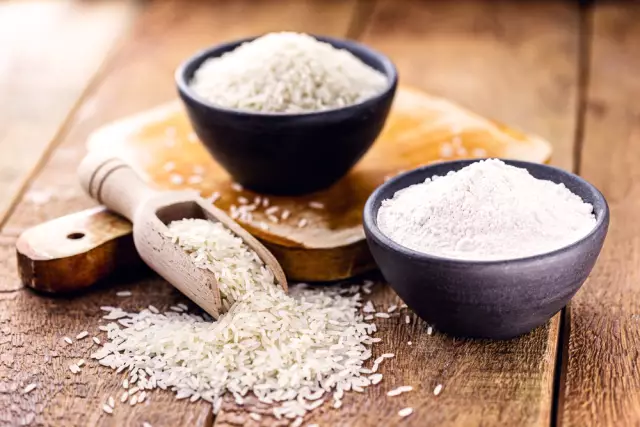- Author Rachel Wainwright wainwright@abchealthonline.com.
- Public 2023-12-15 07:39.
- Last modified 2025-11-02 20:14.
Ketchup

Ketchup is a red sauce made from tomato paste and various spices. In many countries of the world, it is a universal sauce, and it is used with a wide variety of foods - pasta, hamburgers, meat, pizza, etc.
The history of ketchup
At the end of the 17th century, English ships calling at the Chinese port of Canton, waiting for the loading of goods, visited local taverns. Among other dishes they served spicy fish sauce ketsap. It was prepared from anchovies and brine, chopped beans, mushrooms and nuts. The sailors, returning to their homeland, tried in vain to find a similar delicacy in English establishments. However, when there is demand, there will always be supply, so English chefs began to prepare a sauce similar in taste to ketsap. It was prepared from anchovies, beans, mushrooms and walnuts mixed with wine and garlic. Later, instead of anchovies, tomatoes were added to the sauce.
The recipe for tomato ketchup first appeared in 1801 in a cookbook by Sandy Edison. Later, in 1812, another recipe for tomato sauce was published by James Meese, and in 1824 the third recipe was published in the cookbook of the cousin of the third president of the United States, Mary Randolph. Ketchup began to be produced industrially by John Yarkes in 1837.
In the United States in the 19th century, tomato paste-based ketchup enjoyed incredible success. The moisture from the tomato puree was vacuum evaporated without heating, which allowed the thick tomato paste to be stored for a long time at room temperature. Since the beginning of the 20th century, the preservative benzoate has been used in the production of ketchup, which made it possible to significantly reduce the cost of production and increase the shelf life. In 1900, more than 100 companies produced this popular sauce in America.
In addition to an industrial product, ketchup is easy enough to make at home using ripe tomatoes and all kinds of spices (nutmeg, mustard seed, cinnamon, allspice, cloves, ginger, etc.).
Today, ketchup is very popular in many classic eateries due to its low calorie content. Also, for most families, this product is an indispensable attribute on the table, along with mustard.
Ketchup types
There are several types of ketchup in cooking:
- Tomato;
- Barbecue;
- Spicy;
- Spicy (chili);
- For national dishes.
All of these types can be classified into one of four categories, which depend on the technology and method of production. Thus, ketchups of the "Extra" category are considered the highest quality and are made only from fresh varieties of tomatoes or tomato paste with the use of natural additives. It is followed by ketchup of the highest, first and second categories, in the production of which a small proportion of thickeners, stabilizers and colorants is allowed.
Composition and calorie content of ketchup

Today, the composition of ketchup is no longer a secret to anyone - tomatoes in combination with spices and vinegar - this is what should appear on the packaging of high-quality tomato sauce. It is also allowed to add sugar, salt, garlic and other natural products that can in no way harm your health.
Ketchup is about 70% water and 25% carbohydrates. It contains a small amount of fats and proteins, vitamins PP, K, E, B9, C, B6, B1, B2, B5, A, beta-carotene; minerals: fluorine, selenium, manganese, copper, zinc, potassium, calcium, magnesium, sodium.
The calorie content of ketchup is low and amounts to about 100 kcal per 100 g of product.
The benefits and harms of ketchup
Although few people talk about the benefits of ketchup, some scientists consider it a very useful product for certain diseases. The benefits of ketchup include preventing certain forms of cancer and reducing the risk of cardiovascular disease. This is due to the high content of lycopene (which is found in red vegetables, including tomatoes).
In addition, it is believed that ketchup is beneficial for a person's mental balance due to the presence of the "happiness hormone" - serotonin (also thanks to tomatoes).
The harm of ketchup is, first of all, in its excessive use, as well as in the acquisition of a low-quality product. So, for example, the harm of ketchup can be revealed in such unpleasant consequences as the development of allergic reactions, exacerbation of diseases of the gastrointestinal tract, as well as inflammation of the pancreas.
Found a mistake in the text? Select it and press Ctrl + Enter.






